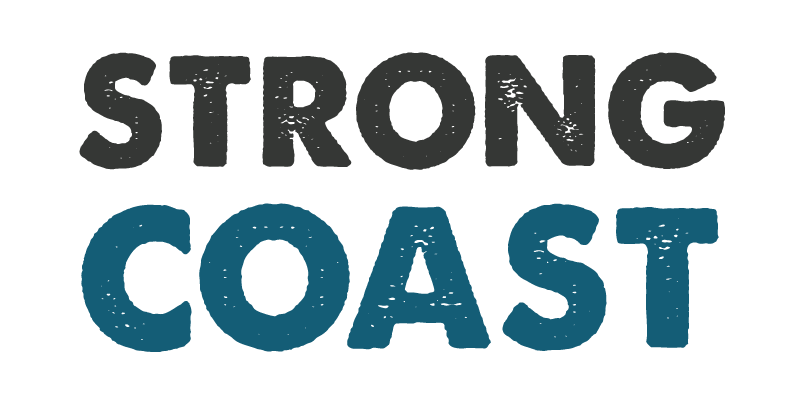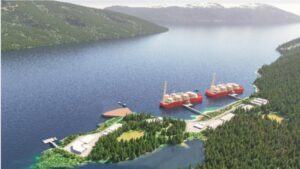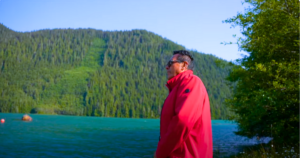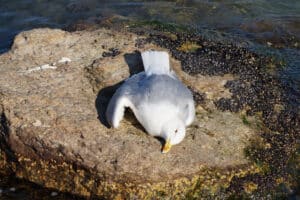A recent report by Fisheries and Oceans Canada highlighted a significant incident of bycatch during the 2022-23 groundfish fishing season off British Columbia’s coast. Nearly 30,000 salmon were caught as bycatch in trawl fisheries, primarily targeting hake and flounder, marking this event as the highest on record. Most of the hake and flounder end up in products like fish sticks and artificial crab. Of the salmon caught, 93% were Chinook, a species crucial not only commercially but also as a primary food source for the endangered southern resident orcas. Sydney Dixon of Pacific Wild pointed out the gravity of this waste, noting that the bycatch quantity could feed several orcas for up to a year.
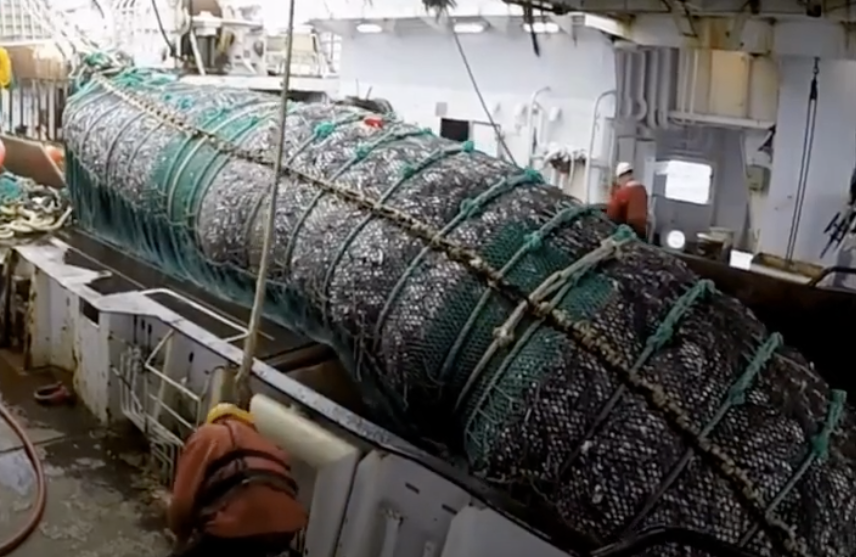
The fishing effort involved 847 trawl trips and was closely monitored from September 26, 2022, to February 20, 2023. Most of the Chinook bycatch came from 7 of the 8 freezer factory trawlers with Option A licences, allowing them to both bottom and mid-water trawl in BC waters. This marked the first year of an enhanced monitoring initiative aiming to better understand and mitigate salmon bycatch. Despite these efforts, individuals like Deborah Giles from Wild Orca expressed deep concern over the impact of such waste, emphasizing the critical need to preserve enough fish to support the existing orca population and their future generations, which are already under threat from various environmental pressures. BC’s Chinook should support our orca populations and coastal communities, not corporations holding licenses and quotas.
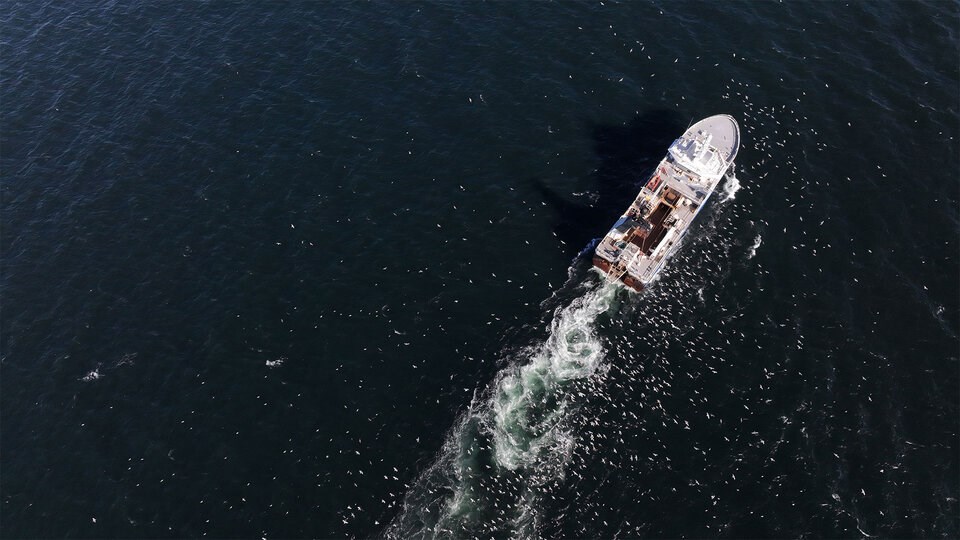
This incident underlines the broader environmental impacts of trawling, a fishing method that often leads to high levels of bycatch, which refers to the capture of unintended species during fishing operations. Bycatch can include various marine species like other fish, marine mammals, and seabirds, many of which may be endangered or unsuitable for commercial use. As trawlers are only licensed to catch specific fish, bycatch is thrown back into the ocean with a very low chance of survival. The practice is wasteful in terms of the coastal economy and disruptive to marine ecosystems, contributing to the decline of species populations and altering the ecological balance.
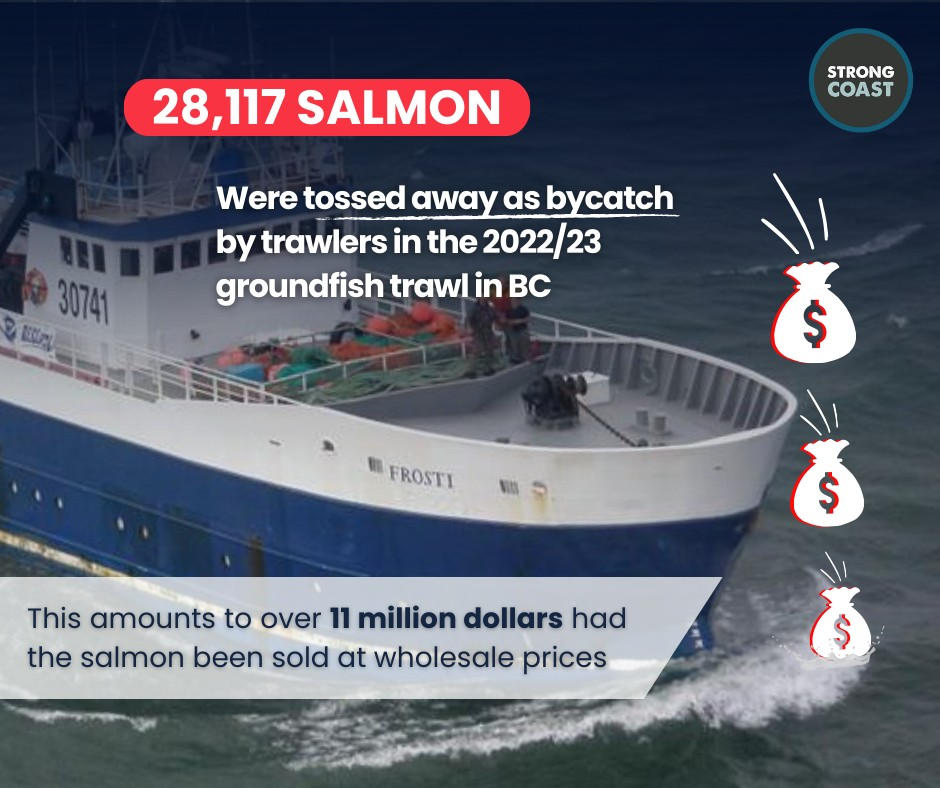
Trawling is particularly destructive due to its indiscriminate nature and the potential to damage seabed habitats, further affecting marine biodiversity. These habitats are crucial for the life cycles of many marine species, and their destruction can have long-term adverse effects on ocean health and fish stocks.
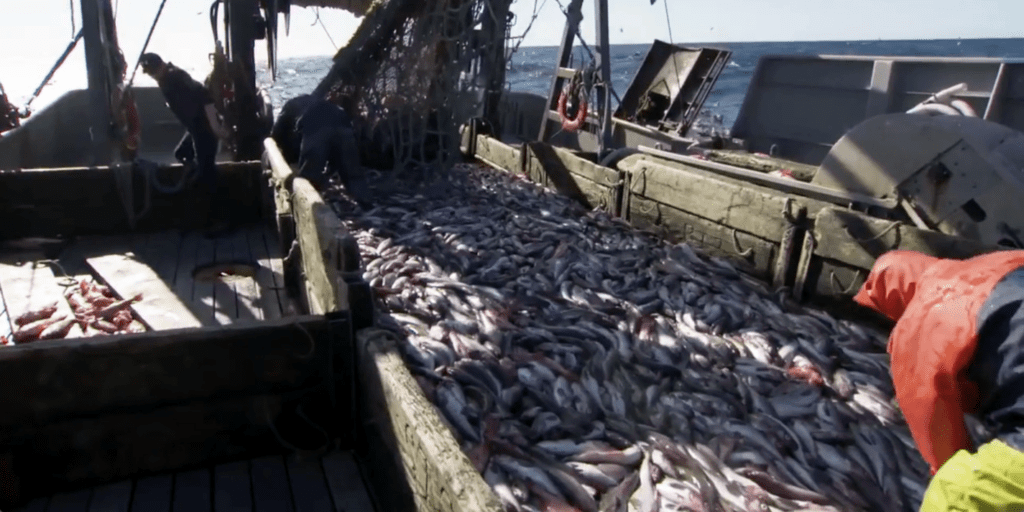
The ongoing debate around trawling and bycatch highlights the need for stricter regulations and more sustainable fishing practices. As climate change continues to affect marine environments, the pressure on vulnerable species like Chinook salmon and southern resident orcas only intensifies, making it imperative to reassess and adapt our fishing methods to ensure the sustainability of these ecosystems.
Read more about this story here.
